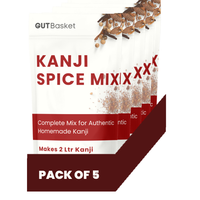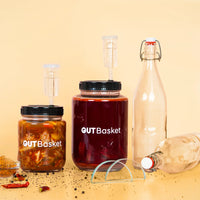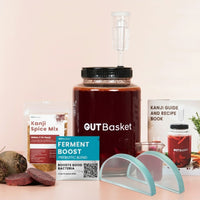Kefir grains may sometimes shrink or fail to multiply due to various factors. To promote their health and growth, consider the following recommendations:
-
Maintain Optimal Temperature: Kefir grains thrive best at temperatures between 22°C to 25°C. Temperatures below 22°C can slow their activity, while those above 25°C may cause stress and grain fragmentation.
-
Use High-Quality, Organic Milk: Feeding grains with organic, full-fat milk rich in lactose supports their growth. Avoid milk containing antibiotics or ultra-pasteurized milk, as these can hinder grain development
-
Increase Feeding Frequency: Regularly refreshing the milk supply provides essential nutrients, promoting grain multiplication.
-
Ensure Proper Ventilation: Fermenting in a well-ventilated area ensures a steady flow of fresh air, which is beneficial for the fermentation process.
-
Choose Appropriate Fermentation Containers: Using shallow, wide-mouth containers allows grains to spread out, facilitating better access to nutrients and preventing clumping.
-
Adjust Grain Quantity Relative to Milk Volume: Ensuring a balanced ratio of grains to milk prevents underfeeding and supports optimal growth.
By implementing these practices, you can enhance the vitality and proliferation of your kefir grains, leading to more consistent and robust fermentation










